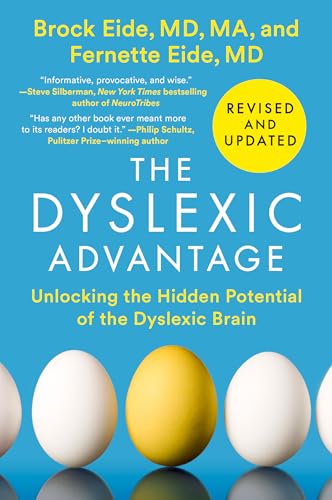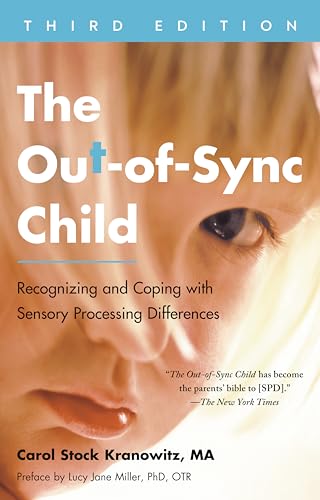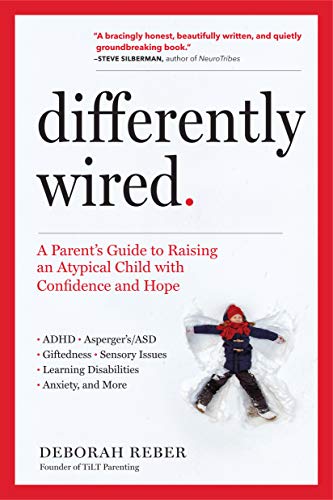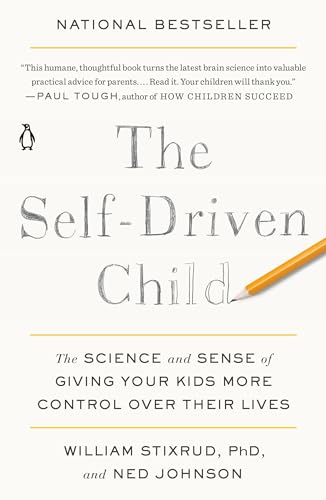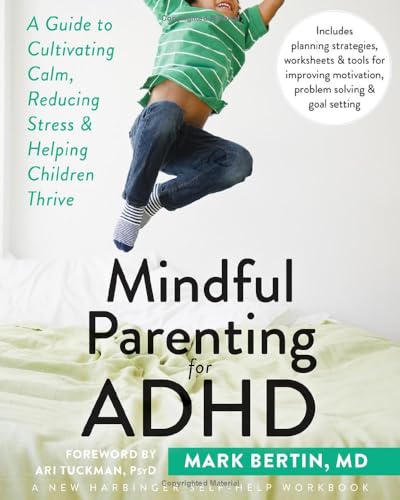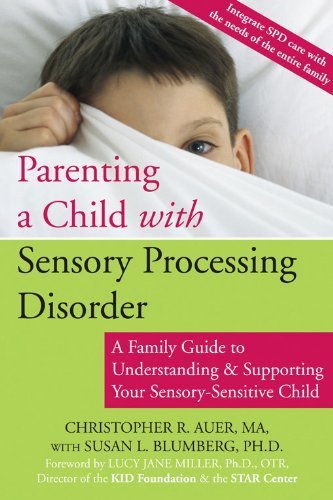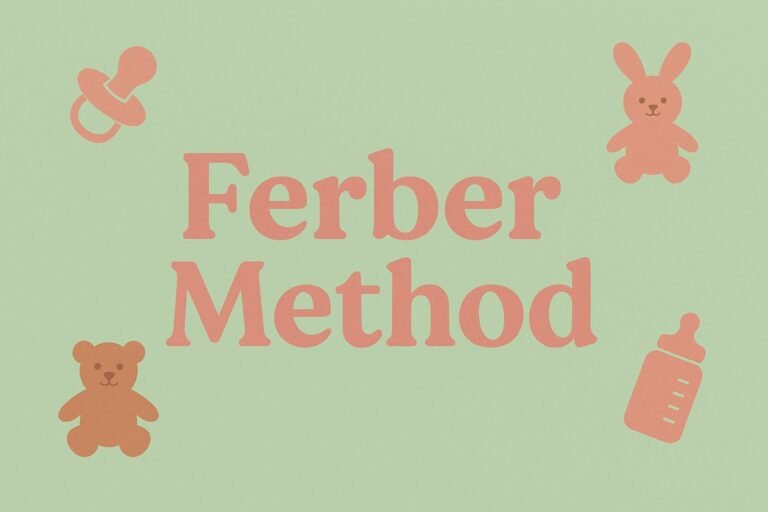Raising kids comes with unique challenges along with incredible rewards. When parenting neurodivergent children, these experiences take on additional dimensions that require special understanding, patience, and strategies. That’s why I’ve compiled this comprehensive guide to the most valuable and most recommended neurodivergent parenting books available today.
Whether your child has ADHD, autism, dyslexia, or another neurodevelopmental condition, these resources offer evidence-based approaches, personal insights, and practical tools to help you and your child thrive.
What makes books for parenting neurodiverse kids so valuable is their ability to transform how we understand our children’s experiences and needs, providing us with the knowledge to advocate effectively and create supportive environments.
Let’s go straight to these must-have resources for raising a neurodiverse kid that can help transform your parenting style to fit the specific needs of your child:
Disclosure: This post contains affiliate links. As an Amazon Associate, I earn from qualifying purchases. I may earn a commission if you click and make a purchase, at no extra cost to you.
Table of Contents
1. The Power of Neurodiversity: Unleashing the Advantages of Your Neurodivergent Brain (Second Edition) by Thomas Armstong, PhD: Best for Understanding the Strengths-Based Approach to Neurodiversity
Thomas Armstrong’s groundbreaking work challenges the traditional deficit-focused view of neurological differences. Rather than seeing conditions like ADHD, autism, and dyslexia as disorders to be fixed, Armstrong highlights the unique talents and abilities that come with neurodivergent minds.
The second edition of The Power of Neurodiversity: Unleashing the Advantages of Your Neurodivergent Brain brings updated research and expanded insights into how neurodiversity can be an advantage in education, careers, and life. Armstrong explores evolutionary perspectives on why these neurological variations have persisted and how they contribute valuable diversity to human society.
2. Uniquely Human: A Different Way of Seeing Autism by Barry M. Prizant, PhD: Best for Parents of Autistic Children Seeking a Compassionate Understanding
Dr. Barry Prizant’s compassionate approach to autism has earned this book numerous awards and recognitions, including the Autism Society of America’s Dr. Temple Grandin Award. Instead of focusing on “fixing” autism, Prizant helps parents understand autism as a different way of experiencing and responding to the world.
Drawing on decades of experience, in Uniquely Human: A Different Way of Seeing Autism, Prizant explains common autistic behaviors as reasonable responses to a challenging environment rather than symptoms to be eliminated. He provides strategies that respect autistic individuals’ dignity while helping them navigate a world not designed for their neurotype.
3. Taking Charge of ADHD: The Complete, Authoritative Guide for Parents by Russell A. Barkley, PhD: Best for Evidence-Based Strategies for Parenting Children with ADHD
Dr. Russell Barkley, one of the world’s leading authorities on ADHD, offers a comprehensive guide that has helped over half a million families navigate the challenges of ADHD. This authoritative resource provides an eight-step program for managing symptoms and building on children’s strengths.
In Taking Charge of ADHD: The Complete, Authoritative Guide for Parents, Barkley combines cutting-edge research with practical strategies for everyday situations, from morning routines to homework time. This must-have parenting book about ADHD and LD includes guidance on medication management, behavioral techniques, school accommodations, and building social skills.
4. The Dyslexic Advantage: Unlocking the Hidden Potential of the Dyslexic Brain by Block Eide, MD, MA, and Fernette Eide, MD: Best for Understanding the Strengths Associated with Dyslexia
Drs. Brock and Fernette Eide reveal how the same brain differences that cause reading challenges can also create significant advantages in areas like spatial reasoning, narrative reasoning, and pattern detection. Their groundbreaking research helps parents and educators recognize and nurture the natural strengths of dyslexic minds.
The Dyslexic Advantage: Unlocking the Hidden Potential of the Dyslexic Brain introduces the MIND strengths framework – Material reasoning, Interconnected reasoning, Narrative reasoning, and Dynamic reasoning – to help readers understand the cognitive gifts that often accompany dyslexia. It also provides practical strategies for addressing reading challenges while developing these strengths.
5. The Out-of-Sync Child: Recognizing and Coping with Sensory Processing Disorder by Carol Stock Kranowitz, MA: Best for Understanding Sensory Processing Challenges
Carol Stock Kranowitz’s classic guide has helped countless parents understand their children’s sensory processing differences. Many neurodivergent children experience sensory input differently, becoming overwhelmed by – or seeking out – certain sensations in ways that can significantly impact daily life.
The Out-of-Sync Child: Recognizing and Coping with Sensory Processing Disorder explains how sensory processing disorder affects children’s behavior, learning, and social interactions. It provides practical strategies for helping children manage sensory challenges at home, at school, and in social situations.
6. Differently Wired: Raising an Exceptional Child in a Conventional World by Deborah Reber: Best for Parenting Mindset and Advocacy Strategies
Deborah Reber, host of the popular TILT Parenting podcast, offers a transformative approach to parenting neurodivergent children. Drawing from her own experiences raising her neurodivergent son, she presents 18 “tilts” or mindset shifts that can help parents move from feeling isolated and overwhelmed to feeling confident and empowered.
Differently Wired: Raising an Exceptional Child in a Conventional World addresses the emotional journey of parenting a differently wired child, offering strategies for managing judgment from others, advocating effectively in educational settings, and helping your child develop self-advocacy skills.
7. Smart but Scattered: The Revolutionary Executive Skills Approach to Helping Kids Reach Their Potential by Peg Dawson, EdD, Richard Guare, PhD, and Colin Guare, MS: Best for Supporting Executive Function Development
Peg Dawson, Richard Guare, and Colin Guare provide a groundbreaking approach to understanding and strengthening the executive skills that many neurodivergent children struggle with, including organization, time management, emotional control, and task initiation.
Smart but Scattered: The Revolutionary Executive Skills Approach to Helping Kids Reach Their Potential helps parents identify their child’s specific executive skill weaknesses and provides step-by-step strategies to strengthen these crucial abilities. It includes age-appropriate interventions that gradually build independence as children mature.
8. Overcoming Dyslexia: Second Edition, Completely Revised and Updated by Sally Shaywitz, MD: Best for Comprehensive Understanding of Dyslexia and Evidence-Based Interventions
Dr. Sally Shaywitz, co-director of the Yale Center for Dyslexia & Creativity, has created what is often considered the definitive guide to understanding and addressing dyslexia. The second edition incorporates cutting-edge research and proven, practical techniques to help children overcome reading challenges.
Overcoming Dyslexia explains the neuroscience behind dyslexia in accessible language, provides tools for early identification, and outlines specific interventions for different ages. Dr. Shaywitz also addresses the emotional impact of dyslexia and shares strategies for building confidence alongside reading skills.
Related: How to Raise a Confident Child: Expert Roundup
9. Raising Human Beings: Creating a Collaborative Partnership with Your Child by Ross W. Greene, PhD: Best for Building Positive Relationships with Neurodivergent Children
Dr. Ross Greene, author of The Explosive Child, presents his Collaborative & Proactive Solutions (CPS) approach, which is particularly effective for neurodivergent children. Greene emphasizes the need to make sense of the skills that children lack rather than to focus on challenging behaviors.
Raising Human Beings: Creating a Collaborative Partnership with Your Child guides parents through a three-step process: identifying lagging skills, understanding the specific situations that trigger problems, and collaboratively solving problems with your child. This approach helps children develop problem-solving skills while strengthening the parent-child relationship.
10. ADHD 2.0: New Science and Essential Strategies for Thriving with Distraction–From Childhood Through Adulthood by Edward M. Hallowell, MD, and John J. Ratey, MD: Best for Understanding the Neuroscience of ADHD and Leveraging Its Strengths
Dr. Edward Hallowell and Dr. John Ratey, leading experts on ADHD, present the latest research on attention differences along with innovative strategies for thriving with ADHD. They introduce the concept of the “variable attention stimulus trait” (VAST) to highlight the positive aspects of attention differences.
ADHD 2.0: New Science and Essential Strategies for Thriving with Distraction–From Childhood Through Adulthood covers new findings about the brain’s Default Mode Network, techniques for enhancing the brain’s dopamine supply, and strategies for leveraging ADHD strengths like creativity, intuition, and hyperfocus. This neurodivergent parenting book provides actionable advice for parents, educators, and individuals with ADHD.
11. The Self-Driven Child: The Science and Sense of Giving Your Kids More Control Over Their Lives by William Stixrud, PhD, and Ned Johnson: Best for Developing Autonomy and Intrinsic Motivation
Clinical neuropsychologist William Stixrud and motivational coach Ned Johnson present research showing that the key to raising resilient, independent children is giving them more control over their lives. This approach is particularly valuable for neurodivergent children, who often face more external control than their neurotypical peers.
The Self-Driven Child: The Science and Sense of Giving Your Kids More Control Over Their Lives explains how supporting autonomy reduces stress and builds intrinsic motivation. It provides specific strategies for helping children make good decisions, develop healthy habits, and take ownership of their learning and development.
12. Mindful Parenting for ADHD: A Guide to Cultivating Calm, Reducing Stress, and Helping Children Thrive by Mark Bertin, MD: Best for Integrating Mindfulness Practices into ADHD Parenting
Dr. Mark Bertin, a developmental pediatrician, combines evidence-based ADHD interventions with mindfulness techniques to help parents reduce stress and strengthen their parenting skills. The book explains how mindfulness practices can improve attention, emotion regulation, and impulse control for both parents and children.
In Mindful Parenting for ADHD: A Guide to Cultivating Calm, Reducing Stress, and Helping Children Thrive, Bertin addresses common challenges like homework, morning routines, and social skills, providing mindful approaches to each. This ADHD book for parents also includes guidance on working with schools, evaluating treatments, and managing medication effectively.
13. Parenting a Child with Sensory Processing Disorder: A Family Guide to Understanding and Supporting Your Sensory-Sensitive Child by Christopher R. Auer, MA, and Susan L. Blumger, PhD: Best for Managing Sensory Processing Challenges
Christopher Auer and Susan Blumberg provide a comprehensive guide to understanding and supporting children with sensory processing differences, which frequently co-occur with ADHD, autism, and other neurodevelopmental conditions.
Parenting a Child with Sensory Processing Disorder: A Family Guide to Understanding and Supporting Your Sensory-Sensitive Child explains the different types of sensory processing challenges, from hypersensitivity to hyposensitivity, and provides practical strategies for home, school, and social situations. This neurodiversity parenting took includes sensory diet activities, environmental modifications, and advocacy guidance.
14. An Early Start for Your Child with Autism: Using Everyday Activities to Help Kids Connect, Communicate, and Learn by Sally J. Rogers, PhD, Geraldine Dawson, PhD, and Laurie A. Vismara, PhD: Best for Supporting Young Children with Autism
Dr. Sally Rogers, Dr. Geraldine Dawson, and Dr. Laurie Vismara present the Early Start Denver Model (ESDM), an evidence-based approach for supporting young children with autism. The book translates this professional intervention into activities parents can incorporate into everyday routines.
In An Early Start for Your Child with Autism: Using Everyday Activities to Help Kids Connect, Communicate, and Learn, the authors explain how to use daily activities like meals, bath time, and playtime to build communication, social engagement, imitation, and play skills. The strategies focus on following the child’s interests while gradually increasing social interaction and learning opportunities.
15. Sincerely, Your Autistic Child: What People on the Autism Spectrum Wish Their Parents Knew About Growing Up, Acceptance, and Identity, Edited by Emily Paige Ballou, Sharon daVanport, and Morénike Giwa Onaiwu: Best for Understanding Autism from Autistic Perspectives
This powerful anthology, edited by Emily Paige Ballou, Sharon daVanport, and Morénike Giwa Onaiwu, presents essays by autistic writers sharing their experiences and insights. The diverse contributors discuss topics like sensory experiences, communication preferences, education, identity development, and navigating relationships.
Sincerely, Your Autistic Child: What People on the Autism Spectrum Wish Their Parents Knew About Growing Up, Acceptance, and Identity offers unique perspectives on what autistic children need from their parents, schools, and communities. It addresses common misconceptions and provides guidance on supporting autistic children while respecting their autonomy and dignity.
Final Thoughts on Neurodivergent Parenting Books
Taking care of and bringing up a neurodivergent child comes with unique challenges, but it also brings extraordinary joys and opportunities for growth. These 15 most recommended neurodivergent parenting books offer valuable insights, practical strategies, and compassionate perspectives to help you navigate your parenting journey with confidence and understanding.
Remember that each neurodivergent child is unique, with their own combination of strengths, challenges, and preferences. The strategies that work for one family may need adaptation for another. Trust your instincts as you apply these ideas to your specific situation, and remember that progress often comes in small steps over time.
Most importantly, these great books on parenting remind us that neurodiversity enriches our families and our world. By understanding, accepting, and supporting our neurodivergent children, we help them develop the confidence and skills they need to thrive as their authentic selves.
What neurodivergent parenting books have you found most helpful? Share your experiences and recommendations for books that every parent should read in the comments below! The other parents from our virtual village would love to hear what worked and what didn’t work for you to enhance their own strategies and approaches.




